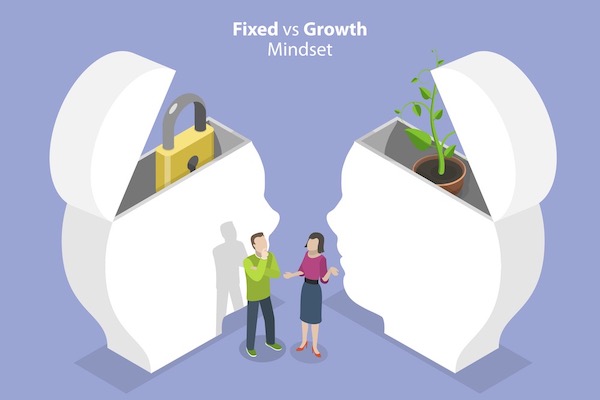A Growth Mindset: Changing Your Diabetes Management
By Andrew Briskin
 The constant mental toll of diabetes management can make it difficult to make positive changes. Experts at the Association of Diabetes Care and Education Specialists (ADCES) 2022 annual conference shared some strategies to change mindsets and avoid setbacks when trying to make lifestyle changes.
The constant mental toll of diabetes management can make it difficult to make positive changes. Experts at the Association of Diabetes Care and Education Specialists (ADCES) 2022 annual conference shared some strategies to change mindsets and avoid setbacks when trying to make lifestyle changes.
Diabetes distress is a common condition among people with diabetes. It can lead to feelings of isolation, exhaustion, or a lack of motivation to keep up with diabetes management routines. Even with the desire to change, these feelings can make it hard to incorporate changes into daily life and stick to them over time.
Dr. Heidi Grant, a social psychologist, author, and associate director of the Motivation Science Center at Columbia University, discussed several strategies to overcome these challenges in her recent keynote address at the ADCES 2022 annual conference in Baltimore, Maryland.
In her address, Grant spoke about her research, which seeks to understand why people with diabetes have trouble changing their behavior, even when they are motivated to do so. According to Grant, there are two main phases involved in changing one’s behavior: getting ready to change and carrying out that change. Preparing and putting oneself in a position to succeed is a necessary part of the process.
To prepare for a behavioral change, Grant suggested adopting a “growth mindset,” as opposed to a “fixed mindset.” In a fixed mindset, people compare themselves to others, while in a growth mindset, people compare themselves only to their past selves.
Approaching the challenge of diabetes management with a fixed mindset can make people question their capabilities right from the start, she said. This can lead to anxiety and can make it difficult to face the challenge to begin with. A growth mindset, however, leads to persistence and resilience over time.
To shift to a growth mindset, Grant recommends a strategy that she calls “notice, then shift.” This involves “noticing” thoughts that contribute to a fixed mindset (such as “I’m not good at this”) and shifting that into a positive (“I’m not good at this, yet”). These small changes emphasize that diabetes management involves a constant, long-term process toward improvement. Grant shared the mantra that has worked for her: “It’s not about being good, it’s about getting better.”
When describing goals, Grant suggests using words such as “grow,” “progress,” “develop,” and “improve.” Incorporating these words into thoughts and conversations can promote growth mindset thinking.
After shifting to a growth mindset, Grant suggests creating “if-then” plans to help with behavioral change. “If-then” plans are concrete, specific sets of actions on where, when, and what to do in a given situation. These plans take the form of “if situation X occurs, then I will perform behavior Y.” For instance, “If it is 3 PM, then I will take a walk around the neighborhood for 20 minutes.”
Creating “if-then” plans for daily life situations can help establish daily routines and prevent situations where people deliberate whether or not to do their desired behavior when the time comes. Focusing “if-then” statements on replacing a habit with another action can help. Grant provided an example of this; instead of “if I see donuts in the break room, I won’t eat them,” think “if I see donuts in the break room, I will have water.”
Thinking positively about the process of improving diabetes management can go a long way in empowering people with diabetes to reach their health goals. For more information about diabetes-related stress and managing your mental health, read these articles:








